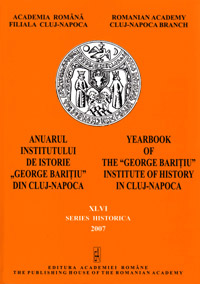Die politischen Schriften des Rechtssoziologen Eugen Ehrlich auf dem Hintergrund seines bewegten Lebens
The Political Writings of the Legal Sociologist Eugen Ehrlich in the Background of his Eventful Life
Author(s): Manfred RehbinderSubject(s): History
Published by: Editura Academiei Române
Keywords: Eugen Erlich; Politics; Czernowitz; Bukowina; Sociology
Summary/Abstract: In his fundamental "Grundlegung der Soziologie des Rechts" appeared in 1913, Eugen Ehrlich introduces the concept of "lebendes Recht", defining it as a result of social action. Consistent with his beliefs on whether a case based on "living right" in multicultural societies, Ehrlich launched and supported between 1909-1914 a special seminar "living right". The multicultural profile of Bucovina not only influenced the structure of the professors and students form University of Czernowitz, but also the direction of scientific preocupations, especially in the case of Eugen Ehrlich. For Ehrlich theory and practice of law are closely related to the characteristics of society. Bukovina is a special case for how social structure and regularities can become sources of law. The period when Eugen Ehrlich actived as a professor of Roman law at the Franz-Joseph University of Czernowitz (between 1896 and 1919), coincided with the peak of his scientific production. The outbreak of First World War forced him to leave Bucovina, because of Russian military threat. This period coincided with disappearance of the Danube Monarchy. In November 1918 Bucovina became part of the Kingdom of Romania and the Franz-Joseph University of Czernowitz became the "Ferdinand I"University. Eugen Ehrlich's attempts to return as a professor at the University of his native city had no chance of success, because of opposition groups which included the rector, Ion Nistor or a part of the Romanian students with anti-Semitic sentiments. Ehrlich was at that time seen as a traitor to the cause of the Czernowitz University, because he claimed openly for its abolition, arguing that such an institution is not justified in a region economically underdeveloped as Bucovina. Although Ehrlich's image has suffered, especially on the end of his career, he still enjoyed the support of leading figures of Rumanian scientific and cultural life. Romanian historian Nicolae Iorga and sociologist Dimitrie Gusti openly supported him by giving him the opportunity to hold a series of conferences or publishing in Bucharest. Eugen Ehrlich's complex personality, created sympathies and antipathies alike, but he remains in terms of his original contributions to the theory and practice of law, as a leading exponent of Bucovina academic life.
Journal: Anuarul Institutului de Istorie »George Bariţiu« - Series HISTORICA
- Issue Year: XLVI/2007
- Issue No: 46
- Page Range: 269-281
- Page Count: 13
- Language: German

